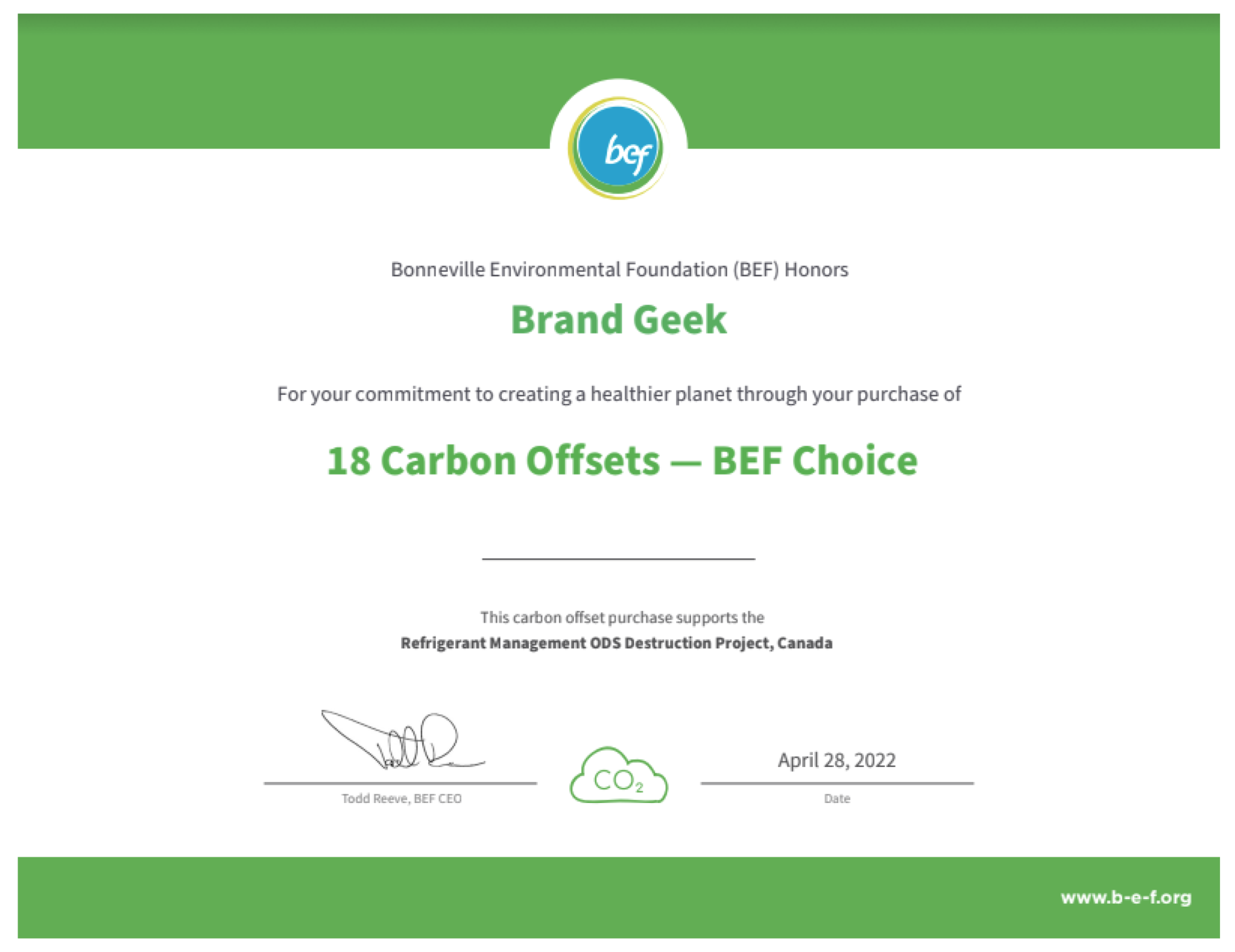Brandgeek proudly supports Mountain Area Preservation and is humbled to be…
TEDx Presidio: Inspiration by the Bay
Yesterday I attended TEDx Presidio. TEDx is a close cousin in the TED family of marks, about which I wrote last month.
Our hosts for the day were Darian Rodriquez Heyman, Managing Partner at Code Green Agency, and Social Venture Network’s Executive Director, Deb Nelson.
Under the rubric Business 3.0 — Not Business as Usual, numerous themes emerged during the TED Talks given yesterday. From the predictable touting of the benefits of triple bottom line business models, to the power of authenticity, brands, and relationships, I found a kernel of wisdom in every talk I heard. I’m going to provide some highlights here.
The morning’s festivities began with an exciting live 3D video stream of a very buff and fast moving martial artist ushering the “X” through the Presidio to TEDx. Darien compared the audience to aspiring 49ers (miners not ball players. He expressed hope that this TEDx would provide us with maps, tools, and the wisdom to create results from actionable insights learned throughout the day.
The first TED Talk of the morning was given by Ari Derfel, who became well known as the co-founder of Back to the Earth catering and Gather restaurant in the Brower Center in Berkeley. Ari’s vision of Business 3.0 — business is a tool to be used to do good. He asked us each to consider:
[framed_box]In what kind of world do I want to live?
How can I contribute?
How committed am I?
How far am I willing to go?[/framed_box]
When Ari said that relationships make life worthwhile, I knew for sure I was spending my Saturday wisely.
Rick Aubry of New Foundry Ventures and faculty at Stanford Graduate business School, Center for Social Innovation spoke next about Lifebouy Soap. Lifebouy he said, is a “brand on a mission.” That mission is led by LifeBouy’s brand manager, a former World Health Organization physician who believes more can be accomplished by a soap manufacturer than the UN when it comes to protecting child health. Lifebouy was instrumental in launching Global Handwashing Day in 2009, which brings awareness to the importance of hand washing, a simple ritual that is life-saving in many rural countries. Rick’s belief is that counter-intuition is going to take us to the next level, as new business links its self-interest to social good.
Kelly McElhaney, Executive Director of the Center for Responsible Business at UC Berkeley encourages audience members to be the authors of their own lives. An interesting statistic she shared with us is that 80% of the market cap value of business comes from intangibles, of which brands comprise a significant percentage. Another interesting tidbit — Walmart is the 23rd largest economy in the world. Think about that. Think about the ripple effect from any company-wide initiatives implemented by Walmart. Kelly said voice+action=change. I like that.
Melanie Nutter, the Director of San Francisco Department of Environment shared lots of interesting information about the city’s environmental initiatives. I noticed several billboards in the area for the new Nissan Leaf. Melanie addressed the issue of “range anxiety,” (which she assured us is real — confirmed by the linked WSJ article on GM’s claim to a TM for the term), stating that the city will install 60 battery charging stations in the next 6 months. The city also has plans to make it so 8 years olds and 80 year olds can feel safe biking all around the city, presumably by the creation of bike lanes. Melanie’s talk showed even governments can take a triple bottom line approach.
Judah Schiller, co-founder of Saatchi & Saatchi S shared his vision of a shift in the way that the largest companies and brand affect the world. His vision is of a paradigm shift towards creating messages that meet with the least resistance. His suggestion was to make communications more playful so that they’re better received.
Paul Wolford, with the architectural firm HOK described his work on the Mint Project (all I can say is WOW!). Paul’s team is charged with retrofitting the US Mint Museum in San Francisco to make it the most environmentally innovative historical building in the US. (Did I mention, WOW?!) Paul’s team is focusing on 6 areas:
[framed_box]1. Reducing loads
2. Passive strategy
3. Active strategy
4. Recovery strategy
5. Self generation
6. Renewables [/framed_box]
Everything that Paul discussed was inspiring but the thing that struck me the most was his notion that most lessons already are around us and exist in the past.
In a very dark room, Kevin Surace of Serious Materials gave a video presentation about his company’s Empire State Building retrofit project, in which all of the original windows installed in 1931 were resurfaced with advanced window technology. The proceedure required removal of 6514 windows, which then had to be cleaned, re-surfaced and re-installed. Overall, 26,000 panes of glass were used! The project was completed 3 months early and resulted in a 40% ($4.4 million a year) energy cost savings. Just goes to show how creativity can result in a positive benefit for planet and profit (and presumably the people who worked on the project as well).
Maria Giudice, CEO of Hot Studio suggested that this is the age of the DEO — Design Executive Officer. She suggested three actions that facilitate change: iterate + evolve; be open to change; think like designers. Maria emphasized some common traits of designers which help them evolve solutions to business challenges (Irony Alert):
[framed_box]1. They’re change agents
2. They think outside the box (get it?)
3. They engage in relevant and meaningful creation
4. They’re systems thinkers
5. They desire and are able to create radical solutions to complex problems
6. They embrace risk [/framed_box]
Maria also encouraged movement from Me to We, which was another theme of the day. Along those lines, she also encouraged us all to think, feel and work like a designer or to hire someone who does).
Jason Rezpka from MTV (yes, really) talked about how his company is responding to the social issues raised in their programming, like STD/HIV Prevention and dating abuse. MTV has taken heat from the public on both issues as some members of the public believe its shows glamorize these societal challenges. By addressing issues that are germane to the MTV brand, they can impact their viewers positively. The results of the public awareness campaigns MTV has run have had quantifiably positive societal impacts and also have been great for employee morale.
Alex Velez & Nikhil Arora are the Co-founders of Back to the Roots, an easy to grow, self-contained mushroom garden that grows mushrooms on spent coffee grounds. Alex and Nikhil shared that they’ll re-use 1,000,000 pounds of coffee grounds this year, which grounds then gets sold as branded soil compost. Talk about a virtuous circle. Unfortunately, it appears that a company named Agverra, LLC got to the PTO ahead of Alex and Nikhil, and they now have a bit of a mess on their hands in order to protect their growing brand.
The final speaker of the day was Chip Conley of Joie de Vivre (JDV). Chip compared America’s last decade to a kid spun out on cotton candy. He challenged us to consider what we’re each gonna do to create transformation within ourselves and our organizations. He encouraged us to abandon the traditional business model of moving from probation to crazy busy meeting drop dead dates to being redundant, resulting in termination to move towards self-actualization with our employees, customers and investors. JDV practices karmic capitalism, and given its routine success and accolades, that appears to be something we all should consider doing.
Hopefully, Chip, Maria and others are correct that we are entering the WE decade — one that will be built on principles of generosity and inclusion. If nothing else, they left me feeling optimistic.
The event concluded with the self-described soulful, sexy, sometimes surreal sounds of Sean Hayes and Eric Kuhn. And I left feeling inspired.
 Relationships were at the heart of yesterdays TED Talks.
Relationships were at the heart of yesterdays TED Talks.
Relationships are the heart of brands.
Choosing counsel who understands both your brands and the relationships they embody will best serve your brands.




Nice write up Lara! Until the videos are posted your review is all we get out on the east coast. See you Thursday at Skamania.
Thanks, Rob! Hopefully I did it justice. Looking forward to seeing you at SVN on Thursday! Safe travels.
[…] TEDx Presidio: Inspiration by the Bay (BrandGeek.net) – “Hopefully, Chip, Maria and others are correct that we are entering the WE decade — one that will be built on principles of generosity and inclusion. If nothing else, they left me feeling optimistic… Relationships were at the heart of yesterdays TED Talks. Relationships are the heart of brands. Choosing counsel who understands both your brandsand the relationships they embody will best serve your brands.” […]